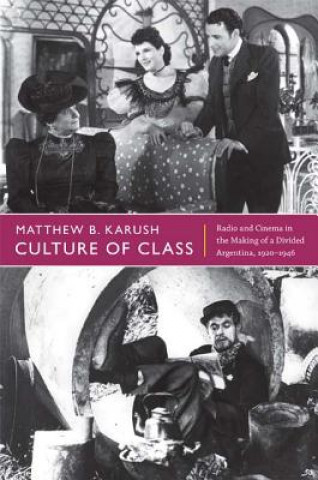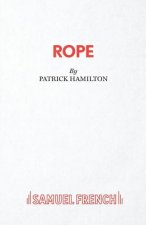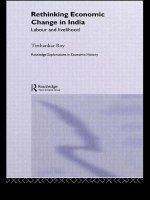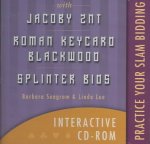
Doručení
Nákupní rádce





Nehodí se? Vůbec nevadí! U nás můžete do 30 dní vrátit
 Dárkový poukaz
V libovolné hodnotě
Dárkový poukaz
V libovolné hodnotě
S dárkovým poukazem nešlápnete vedle. Obdarovaný si za dárkový poukaz může vybrat cokoliv z naší nabídky.
Culture of Class
 Angličtina
Angličtina
 80 b
80 b
30 dní na vrácení zboží
Mohlo by vás také zajímat


In an innovative cultural history of Argentine movies and radio in the decades before Peronism, Matthew B. Karush demonstrates that competition with Hollywood cinema and jazz music shaped Argentina's domestic cultural production in crucial ways. Argentine producers tried to elevate their offerings to appeal to consumers seduced by North American modernity. At the same time, the transnational marketplace encouraged these producers to compete by marketing "authentic" Argentine culture. Domestic filmmakers, radio and recording entrepreneurs, lyricists, musicians, actors, and screenwriters borrowed heavily from a rich tradition of popular melodrama. Although the resulting mass culture trafficked in conformism and consumerist titillation, it also disseminated versions of national identity that celebrated the virtue and dignity of the poor, while denigrating the wealthy as greedy and mean-spirited. This anti-elitism has been overlooked by historians, who have depicted the radio and the cinema as instruments of social cohesion and middle-class formation. Analyzing tango and folk songs, film comedies and dramas, radio soap operas, and other genres, Karush argues that the Argentine culture industries generated polarizing images and narratives that provided much of the discursive raw material from which Juan and Eva Peron built their mass movement.
Informace o knize
 Angličtina
Angličtina
Kategorie




 Jak nakupovat
Jak nakupovat
































